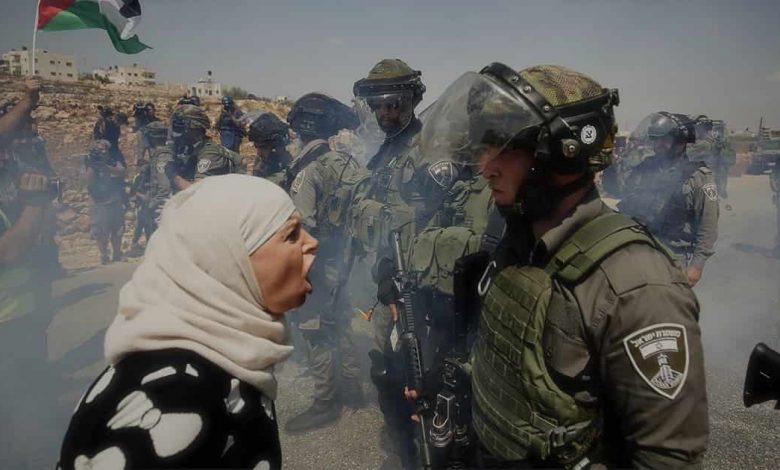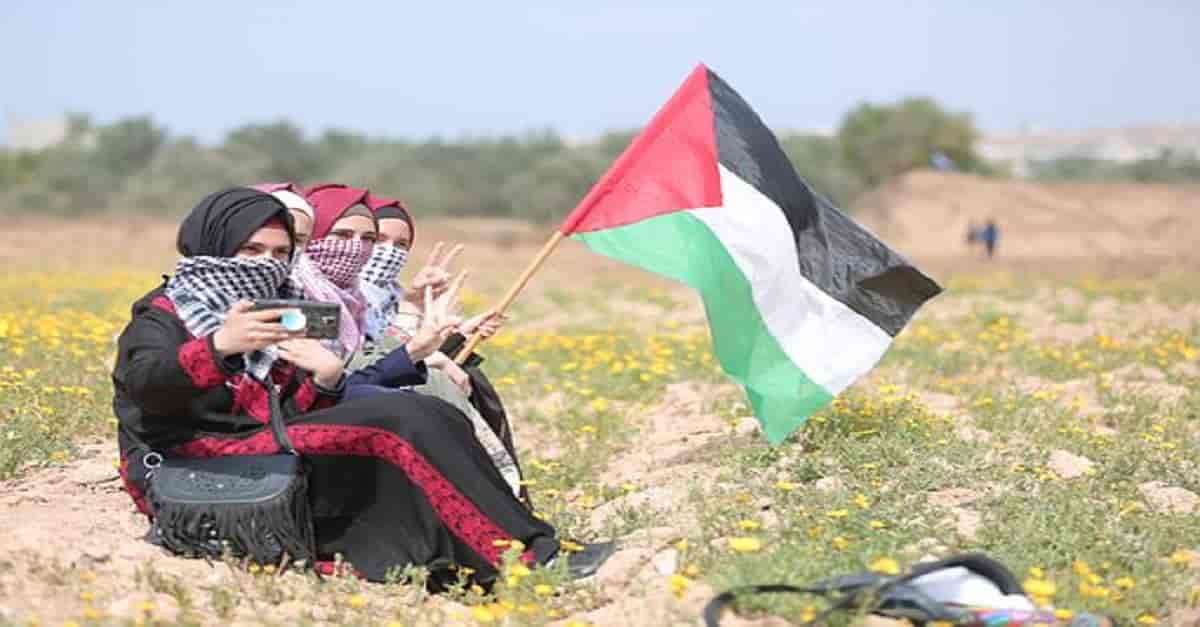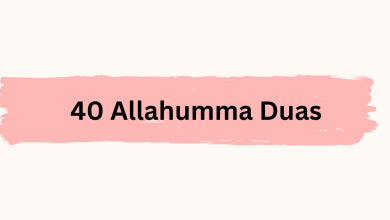Palestine vs. Israel: An Ongoing Struggle for Peace – Latest 2024

The Palestine vs. Israel conflict is a deeply rooted, multifaceted, and longstanding issue that has captured global attention for decades. This complex geopolitical struggle has sparked heated debates, raised moral and ethical questions, and, most importantly, has resulted in immense suffering for the people living in the region. Understanding the Palestine vs. Israel conflict is crucial for grasping one of the most contentious and enduring conflicts in modern history.
Table of Contents
A Historical Overview
The roots of the Palestine vs. Israel conflict can be traced back to the late 19th century when the Zionist movement, led by Theodor Herzl, began advocating for the establishment of a Jewish homeland in Palestine. This idea gained momentum, especially after the horrors of the Holocaust, leading to the founding of the state of Israel in 1948.
However, this development was met with strong resistance from the Arab world and the indigenous Palestinian population. The result was a series of wars, including the 1948 Arab-Israeli War and the Six-Day War in 1967, which reshaped the borders and exacerbated the Palestine vs. Israel conflict.
Key Issues
- Territorial Disputes: One of the central issues in Palestine vs. Israel conflict is the control and ownership of land. The Israeli government, under the banner of security and historical claims, has occupied and settled in areas that were once predominantly Palestinian.
- The Status of Jerusalem: Jerusalem is a city sacred to Jews, Muslims, and Christians. The question of its control and governance has been a flashpoint in the Palestine vs. Israel conflict.
- Refugee Crisis: The Palestine vs. Israel conflict has created one of the world’s most enduring refugee problems. Millions of Palestinian refugees are dispersed across the Middle East, living in camps for generations, and demanding the right of return.
- Security Concerns: Both states have legitimate security concerns. Israel argues that it needs to protect its citizens from terrorist attacks. Palestinians contend that they are resisting occupation and oppression.
International Involvement in Palestine vs. Israel Conflict
Numerous international efforts have been made to resolve the Palestine vs. Israel conflict, with organizations like the United Nations and the European Union playing pivotal roles. The Oslo Accords in the 1990s aimed at establishing a two-state solution, but the peace process eventually stalled, leading to a cycle of violence. Why Muslims love Palestine?
The Future
The path to peace is challenging, but it is not impossible. Resolving the Palestine vs. Israel conflict requires diplomatic negotiations, a commitment to a two-state solution, addressing the concerns of both parties, and international support for a peaceful resolution.
The Palestine vs. Israel conflict remains a contentious issue with deep historical and emotional roots. Understanding the nuances of this Palestine vs. Israel conflict is essential for anyone interested in international affairs and human rights. Achieving a lasting solution will require unwavering dedication from both Israelis and Palestinians, as well as the support of the international community. It is a conflict with no winners, only the potential for shared peace and prosperity if both sides can find common ground and coexist.
Why Should Muslims Support Palestine?
Support for Palestine among Muslims is often rooted in several key factors:
- Religious Significance: Al-Aqsa Mosque in Jerusalem, one of the holiest sites in Islam, holds deep religious significance. It is believed to be the third holiest site in Islam, and Jerusalem itself is mentioned in the Quran. Many Muslims feel a spiritual connection to the land and consider it a part of their religious heritage.
- Solidarity: Many Muslims view the Palestinian struggle as a symbol of resistance against oppression. They see the Palestinian people as standing up for their rights, including the right to self-determination, which resonates with the principles of justice and fairness emphasized in Islam.
- Humanitarian Concerns: The Palestine vs. Israel conflict has led to significant human suffering, particularly among Palestinian civilians. Issues like the blockade of Gaza, restrictions on movement, and the periodic outbreak of violence concern Muslims who feel a moral duty to help those in need.
- Historical Perspective: The creation of Israel in 1948 resulted in the displacement of hundreds of thousands of Palestinians, a significant portion of whom were Muslim. This historical trauma, known as the Nakba (catastrophe), remains a defining event in Palestinian history and resonates with Muslims worldwide.
- International Law and Justice: Many Muslims, like others around the world, support the application of international law and the principles of justice to the Palestine vs. Israel conflict. They advocate for a two-state solution based on internationally recognized borders and the right to self-determination for both Israelis and Palestinians.
- Unity and Solidarity: Expressing support for Palestine is seen as a way to promote unity among Muslims and to stand in solidarity with a marginalized and oppressed group. This is in line with the concept of brotherhood and sisterhood emphasized in Islam.
- Political and Historical Perspective: Some Muslim-majority countries and organizations have taken a strong stance in support of Palestine. This has influenced public opinion in those regions and fostered a sense of shared responsibility.
It’s important to emphasize that support for Palestine among Muslims is not universal, and opinions on this issue can vary widely within the Muslim community. Many people, regardless of their religious or cultural background, support peace, dialogue, and a just resolution to the Palestine vs. Israel conflict that respects the rights and dignity of both Israelis and Palestinians. Ultimately, the desire for a peaceful and equitable solution is shared by many people around the world, regardless of their faith. See Also What trauma do children suffer in Israel’s war on Gaza?
Are Palestine and Russia Allies?
Palestine and Russia maintain diplomatic relations. Russia has expressed support for a two-state solution to the Palestine vs. Israel conflict and has recognized East Jerusalem as the capital of a future Palestinian state. While they have diplomatic ties, it’s a nuanced relationship, and the extent to which they are “allies” depends on the specific issues and political dynamics.
Are Palestine and Gaza the Same?
Gaza is a territory within Palestine. Palestine consists of the West Bank and the Gaza Strip, among other regions. So, while Gaza is a part of Palestine, the two are not the same.
Are Palestine and Israel Enemies?
Palestine and Israel have a long-standing and complex conflict over territory, self-determination, and other issues. While they don’t have diplomatic relations, it’s essential to understand that the situation involves deep political, historical, and territorial disputes.
Are Palestine’s Hamas?
Hamas is a political and military organization of Palestine that controls the Gaza Strip. It’s considered a terrorist organization by some countries and groups but is also a legitimate political entity within the Palestinian territories.
Are Palestine and Hamas the Same Thing?
No, they are not the same. As mentioned earlier, Palestine refers to a broader region, including the West Bank and the Gaza Strip. Hamas is a specific Palestinian organization that governs the Gaza Strip.

Are Palestine’s Arab?
Yes, Palestinians are primarily Arab, although the population includes other ethnic groups as well.
Are Palestine and Iran Allies?
Palestine and Iran have had a relationship based on political and ideological alignment. Iran has provided support to various Palestinian groups. However, the extent and nature of their relationship can vary over time.
Can Palestine Defeat Israel?
The Palestine vs. Israel conflict is highly complex, and achieving a resolution depends on various factors, including diplomacy, international involvement, and the will of both parties. A military victory is not a feasible or desirable solution, as it would result in significant human suffering.
Can Palestine Win?
Winning, in the context of the Palestine vs. Israel conflict, would generally mean achieving a peaceful and just resolution, including self-determination and statehood. Winning should be understood as achieving their political and human rights rather than a military victory.
Can Palestine Go to Israel?
Travel between Israel and the Palestinian territories is subject to restrictions and requires permits. Palestinians have access to different areas within Israel and the West Bank, depending on their residency status. However, movement is often subject to Israeli policies.
Can Palestine Become a State?
The recognition of Palestine as a state is a subject of international debate. Some countries and international organizations have recognized it as a state, while others have not. Achieving full statehood would require negotiations with Israel and broader international support.
Can Palestine Join NATO?
Membership in organizations like NATO (North Atlantic Treaty Organization) is typically reserved for independent states. Whether Palestine could join such organizations would depend on its recognition as a sovereign state and the approval of existing member states.
Did Palestine Agree to Israel?
The Palestine vs. Israel conflict involves a series of agreements, disagreements, and negotiations. The Oslo Accords are among the most notable agreements, but the Palestine vs. Israel conflict is far from fully resolved.
Do Palestinians Have Passports?
Palestinians in the West Bank and Gaza Strip often hold Palestinian Authority passports or travel documents issued by Israel or Jordan, depending on their location. Palestinian refugees may also hold different travel documents.
Do Palestinians Speak Hebrew?
While Arabic is the primary language spoken by Palestinians, there are some Arabic-speaking Israelis and Palestinians who may speak Hebrew, particularly those living in mixed communities or those who work with Israelis.
Do Palestinians Have a Country?
The status of a Palestinian state is a subject of international debate. While Palestine has been recognized as a state by many countries, it does not have full sovereignty and control over all its territory.
Do Palestinians Have Israeli Passports?
Some Palestinians in East Jerusalem may hold Israeli-issued residency permits, which allow them to travel within Israel and to some extent internationally. However, this doesn’t equate to full Israeli citizenship.
Does Palestine Have Nuclear Weapons?
Palestine is not known to possess nuclear weapons. The focus of the Palestine vs. Israel conflict is primarily on territorial, political, and human rights issues.
Does Palestine Have a Government?
The Palestinian territories have two main governing authorities: the Palestinian Authority, which governs parts of the West Bank, and Hamas, which governs the Gaza Strip. These entities perform many functions of governments but face complex challenges due to the ongoing conflict.
Does Palestine Have Fighter Jets?
Palestine does not have an air force, and the Gaza Strip, under Hamas control, does not possess fighter jets. Israel maintains control of airspace over the Palestinian territories.
Has Palestine Always Been a Country?
Palestine has a long history and cultural heritage, but its political status as an independent country has been the subject of historical changes, foreign rule, and ongoing conflict.
Does Palestine Have Sovereignty?
The extent of Palestinian sovereignty is limited due to the ongoing conflict and Israeli control over certain areas. Achieving full sovereignty is a central goal of the Palestinian national movement.
Does Lake Palestine Have Alligators?
Lake Palestine in Texas has been reported to have alligators. Alligator sightings in various lakes in Texas are not uncommon.
How Did the Palestine vs. Israel Conflict Start?
The Palestine vs. Israel conflict has deep historical roots but significantly escalated with the creation of the state of Israel in 1948. It’s characterized by disputes over territory, borders, and the rights of Palestinians.
How Palestine Lost Its Land?
The loss of Palestinian land is a complex issue tied to the creation of Israel in 1948, the Arab-Israeli wars, and ongoing territorial disputes.
How to Visit Palestine?
Visiting Palestine involves coordinating with relevant authorities and considering the situation on the ground, as travel to the West Bank and Gaza Strip can be subject to restrictions.
How Israel Occupied Palestine?
The Israeli occupation of Palestinian territories, including the West Bank, Gaza Strip, and East Jerusalem, began in 1967 following the Six-Day War.
How to Donate to Palestine?
Donations to Palestinian causes can be made through various international organizations and charities. However, it’s crucial to research reputable organizations to ensure your contributions are used effectively.
Is Palestine in Israel?
The territories of the West Bank, Gaza Strip, and East Jerusalem are claimed by both Israelis and Palestinians. Israel controls many aspects of life in these areas, leading to complex questions of sovereignty and occupation.
Should Palestine Have an Independent Territory?
The question of Palestinian statehood is a central issue in the Palestine vs. Israel conflict. Many in the international community support the idea of a Palestinian state alongside Israel.
Should Palestine Be Recognized as a State?
The recognition of Palestine as a state is a subject of international debate. Many countries and organizations have recognized it as a state, while others have not.
Should Israel and Palestine Be Divided?
The division of Israel and Palestine, based on the concept of a two-state solution, is a proposed resolution to the conflict. Opinions on this matter vary widely.
Should Israel and Palestine Unite?
While a two-state solution is widely discussed, the question of whether Israel and Palestine should unite into a single state is less commonly considered and raises significant challenges.
Was Palestine a Country Before Israel?
Palestine has a historical and cultural identity but did not exist as a sovereign nation-state in modern terms before Israel’s establishment in 1948.
Was Palestine Part of the Ottoman Empire?
The region that includes modern-day Israel and the Palestinian territories was part of the Ottoman Empire until the end of World War I when the empire dissolved.



